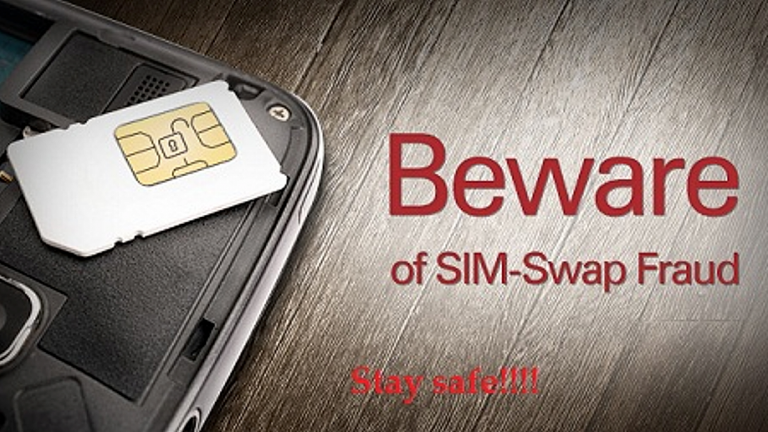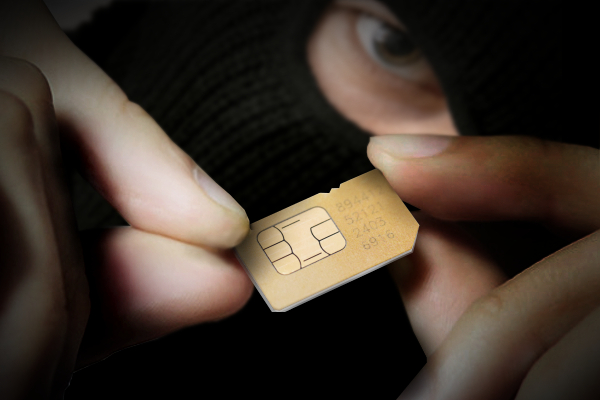
Secunda: Police at Secunda are concerned about the increase of fraud and theft cases reported at Secunda Police Station for investigation.
This came after numerous incidents which occurred at Secunda whereby victims were defrauded of amounts between Eleven thousand rand (R11000.00) and Thirteen thousand rand (R13000.00).
It is alleged that the perpetrators will offer the victims free SIM cards from Vodacom, MTN or Cell C and ask them to do a Sim swap.
Another modus operandi is that victims will receive an SMS, email or a telephone call from a bank official informing them of possible illicit transactions and then requesting the victim to confirm their personal banking details, after which the victim will receive a notification about money being withdrawn from their accounts. Do not respond to these calls, rather end the call, by saying that you will visit your branch.
Another Modus Operandi is where an ATM would struggle to take the victim’s card, after which a person would offer assistance. This assistance would result in the swopping of the victim’s bank card. Withdrawals and purchases would then be made with these stolen cards.
The police therefore warns the community to not fall prey to such incidents.
Police encourage the community, more especially when using internet banking to:
- Memorise the PIN and password, and do not write them down or share them with anyone including the bank official.
- Make sure that your PIN and password cannot be seen when entering them during ATM transactions.
- Change the PIN or password immediately once you think that the password or PIN has been compromised.
- Register for the bank’s cellphone notification service and receive electronic messages relating to activities.
- Inform the bank should your cellphone number change so that the cellphone notification contact number can be updated on its systems.
- Notify the bank if reception on your phone is lost. Check what the problem could be as you could have been a victim of SIM swap on your number.

The following precautionary measures can be followed to prevent internet fraud.
- Never do internet banking in public areas such as internet cafés. You never know what software is loaded that may compromise your transactions.
- Make sure that no one has unauthorised access to your PC.
- Be aware that that there are no security cameras trained on your PC and keyboard.
- Make sure that the software loaded onto your PC is correctly licensed.
- Update your operating system and browser with the latest patches.
- prevent harmful software such as viruses, Spyware and Trojans from infecting your PC by having the latest anti-virus applications loaded on your PC which most banks provide this free of charge to their customers.
- Remember to log off immediately when you have finished with your internet banking transaction on your PC.
In other incidents of fraud, victims will see items for sale on the internet or social media and they will contact the seller which they will convince them to make a deposit or full payment in order for the item to be delivered to them and after making the deposit or transferring the money, the perpetrators will disappear, making it difficult for the victims to communicate further with them.
Also Read: Afriforum control rooms in the fight against crime
The station commander of Secunda police station Colonel Herold Mashile further warns the community not to make any payment to anyone who has advertised an item or product including a motor vehicle on social media or the internet. The only time one can make a payment is after seeing or meeting with the person and is satisfied with the condition of the item or product. Furthermore, if one needs to buy a car, he/she must visit the nearest car dealership.
Police also encourage the community to report any form of crime or suspected criminal activities calling the crime stop number 08600 10111. Alternatively, members of the public can send information via MYSAPSAPP. All received information will be treated as confidential and callers may opt to remain anonymous.
8 SECURITY TIPS TO AVOID FALLING PREY TO SIM SWAP FRAUDS
With online banking gradually becoming a preferred choice of financial transaction for most, fraudsters have renewed their malicious efforts to target their victims. A relatively new type of fraud has come to light. It is known as SIM swap fraud. And we’re here to tell you how you can avoid it by following some simple security measures.
What is SIM Swap Fraud?
SIM swap fraud is malpractice where the perpetrators falsely acquire a SIM card in your name, issued with your mobile number. The primary aim behind this fraud is to have access to security alerts such as One Time Passwords (OTP) which you receive on your registered phone number to proceed with almost all kinds of financial transactions online.
How Do SIM Swap frauds Work?
SIM swap is a second phase of an entire scam planned by an attacker. The first phase consists of gathering personal information about the targeted victim. In most cases, the attacker accomplishes this, with the help of a phishing attack.
The phishing attack is to gather personal and banking information about the victim. This may include name, address, date of birth, phone number, driving license number, net banking ID and password, ATM PIN, CVV number, etc. This attack may be launched in the following ways:
Phishing email – attacker sends a fake email to the victim containing a form or a link to a spoofed website to capture personal information.
Vishing (voice phishing) – attacker calls the victim, posing as a bank executive or an official of a reputed company.
SMiShing (SMS phishing) – attacker sends fake SMSs to the victim containing links to a fake website or malware that can steal user information.
Once the attacker has the all required user data, they approach the victim’s mobile service provider with forged identity documents. They get a new SIM card by reporting a loss of a mobile device or a damaged SIM card. This way, the phone number of the genuine customer gets deactivated. Using the stolen banking information, the attacker can then easily conduct illegal financial transactions, now that they have access to the OTP.
8 Security Tips to Avoid Falling Prey to SIM-Swap Frauds
1. The most important measure is to ensure that your phone’s connection is working normally. If your SIM gets deactivated without any known reason, then report it to your mobile operator immediately.
2. Never give away personal or financial information over emails, phones, SMSs, online chat platforms like WhatsApp, or any media for that matter.
3. Switching off your phone for a long period of time for reasons such as unwanted calls or SMSs could be dangerous. These calls could be a ploy of the attacker to trick you into turning off your phone so that you remain unaware of any connectivity issues.
4. If your bank offers SMS and email alerts for all your banking activities, then opt for both the options.
5. Check your bank statements regularly to ensure that there are no irregularities.
6. Most websites ask for your phone number among other information to let you use their services. In such scenarios, avoid giving away your real name, the actual date of birth, and your phone number which is registered with your bank.
7. Avoid making your phone number public on social media sites.
8. As phishing is used as the main weapon in this type of scams, consider having anti-phishing and anti-malware protection on your PC and smartphone.
It can be safely assumed that incidents of SIM swap frauds will increase with time and could become more advanced. Your safety depends on how vigilant and updated you are about the growing threats in the world of the Internet.